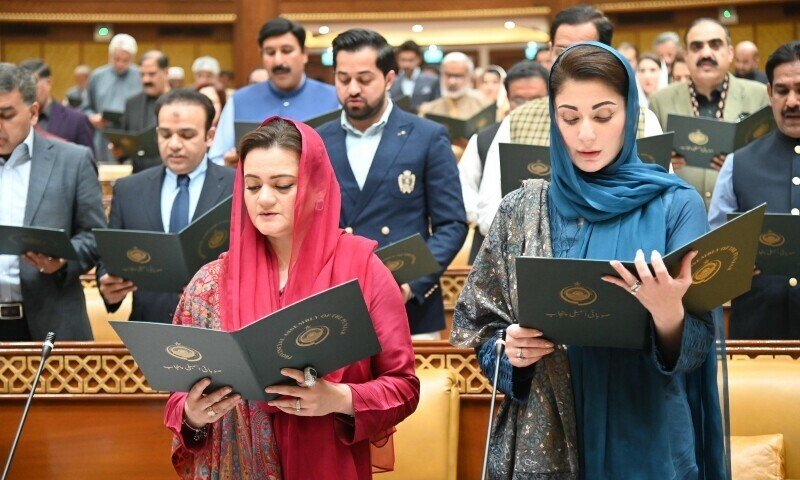The Punjab Assembly has approved a bill that significantly increases the salaries of public representatives, including MPAs, ministers, and officials. According to the bill, an MPA’s salary will increase from Rs 76,000 to Rs 400,000, a staggering 426% increase.
Similarly, a Punjab provincial minister’s salary will rise from Rs 100,000 to Rs 960,000, an 860% increase. The Speaker’s salary will increase from Rs 125,000 to Rs 950,000, a 660% hike. The Deputy Speaker’s salary will rise from Rs 120,000 to Rs 775,000, a 546% increase.
Other officials will also receive substantial salary hikes. The Parliamentary Secretary’s salary will increase from Rs 83,000 to Rs 451,000, a 443% increase. The Special Assistant’s salary will rise from Rs 100,000 to Rs 665,000, a 565% hike. The increases will come into effect on January 1, 2025.
The opposition members in the Punjab Assembly walked out in protest against the alleged killings of PTI workers in Islamabad. The opposition leader in the Punjab Assembly and PTI members protested on the assembly’s stairs and chanted slogans against the government.
A resolution was also presented in the assembly to pay tribute to Maryam Nawaz for her successful eight-day visit to China. The resolution stated that Maryam Nawaz’s visit to China was a significant step towards strengthening the friendship between the two countries. The resolution also appreciated the agreements and MoUs signed during the visit, which will contribute to the development and prosperity of the province. So
Where do the loans of IMF go?
The answer is that they go towards supporting countries in need of financial assistance. The IMF provides loans to help countries restore economic stability, promote growth, and reduce poverty. These loans are not used to fund specific projects but to provide a country with the financial breathing room it needs to implement economic reforms.
The IMF lending process is flexible, and countries that maintain a commitment to sound policies may be able to access resources with no or limited conditionality. The IMF also charges various fees, including a basic charge, surcharge, commitment fee, and service charge, which are designed to cover the IMF’s operational costs and support its activities.
In the case of Pakistan, the IMF has provided loans to support the country’s economic reforms and stabilize its economy. However, the recent increase in salaries of public representatives in Punjab has raised questions about how these funds are being used.


